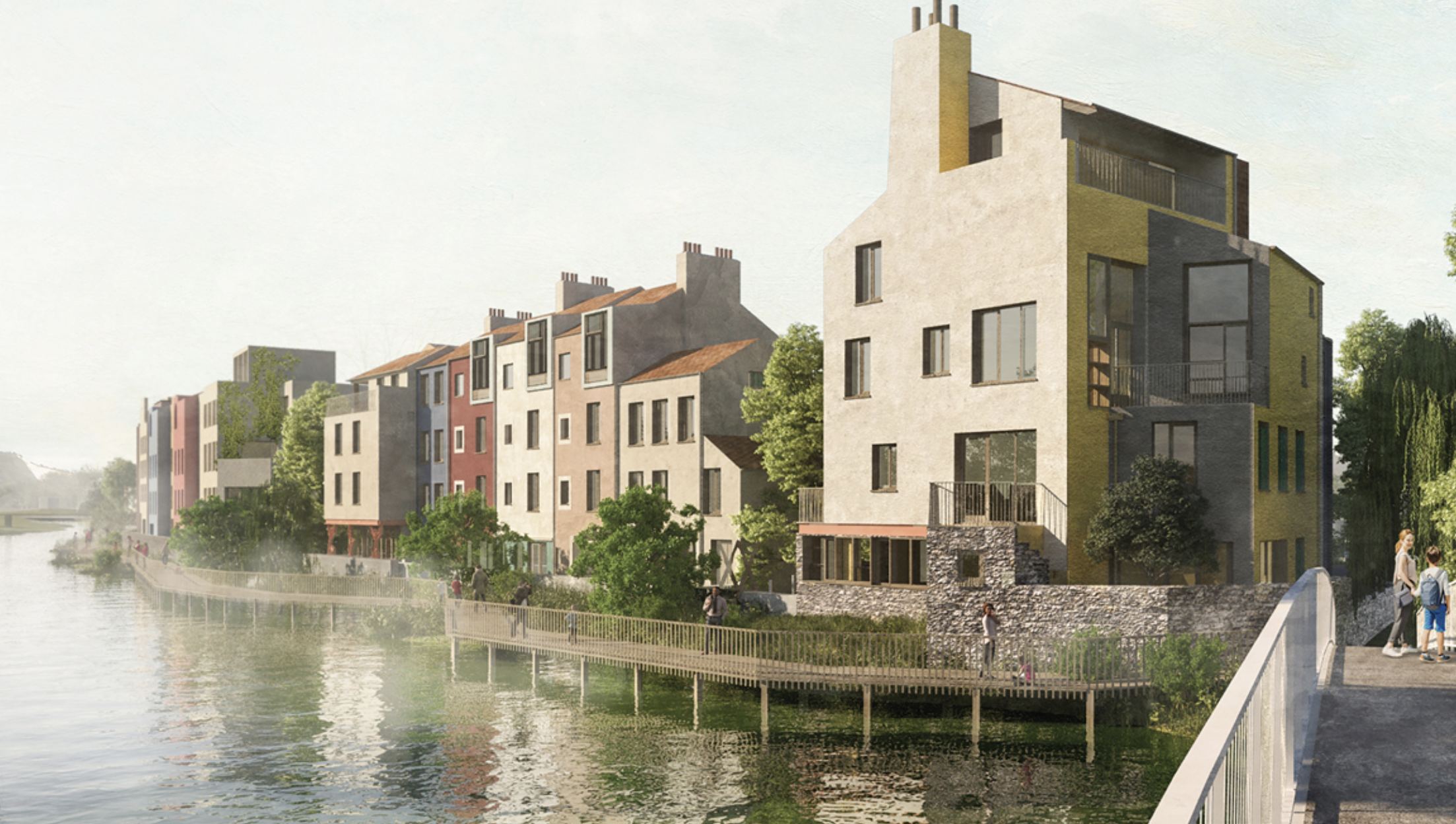Go-ahead for UK’s largest timber-structure neighbourhood
Campaigning development company Human Nature has secured planning for a 685-home riverside estate conceived, built and operated on circular principles and community-first thinking.
The Lewes-based company, which was founded by former Greenpeace directors Michael Manolson and Jonathan Smales, has called on a dozen architects to design the UK’s ‘most sustainable neighbourhood’.
Its visionary project, known as the Phoenix, will transform a former industrial site in Lewes, East Sussex and is being promoted as a design template for towns in the future.
Buildings will be constructed from engineered timber, with prefabricated cassettes made from local timber and biomaterials such as hemp.
Where possible, existing materials from the site’s industrial past – including cladding, steel trusses, bricks and buttresses – will be salvaged and repurposed or reconstituted.
A key part of the green village design focus leads a shift away from reliance on private vehicle ownership to creating safe streets for walking, cycling and wheeling.
Instead, the village will use a co-mobility hub that incorporates electric-car share, car hire and car club, electric bike service and a shuttle-bus facility.
The Phoenix was masterplanned by Human Nature’s in-house design team, regenerative design agency Periscope, and Kathryn Firth, director of masterplanning and urban design at Arup.
The Phoenix’s professional team
Masterplanning: Human Nature, Periscope, Kathryn Firth (Arup)
Architects: Adam Richards Architects, Archio, Al-Jawad Pike, Ash Sakula Architects, Charles Holland Architects, Human Nature, Mae, Material Cultures, Mole Architects, Rabble Architecture, TDO
Executive civil engineer: Expedition
Executive structural engineer: Whitby Wood
Environmental engineers: Atelier Ten
Transport: WSP, Urban Movement
Timber engineers: Eurban
Ecology: Ecology Solutions
Planning consultant: Whaleback
Cost consultant: RUA
Smales, founder and CEO of Human Nature, said: “The current mainstream model of development is catastrophic, baking in deeply unsustainable fabric, infrastructure and transport, fuelling the climate and nature crises; it also creates social divisions and exacerbates loneliness.
“We aim to show that living sustainably can be a joy, not an exercise in self-denial, made far easier by the design of neighbourhoods.”
“Our focus on radically improving environmental and social impacts through the power of placemaking is uncommon in 21st-century Britain. But the result won’t feel unfamiliar, rather a return to traditions we’ve forgotten.”
“Pheonix will be a place of elegantly designed buildings made using local materials, streets safe for children to play in, with most daily needs met within a short walk and where it’s easy to meet and socialise with your neighbours.”

